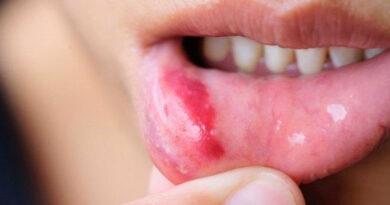Sibo Hair Loss
If you’ve ever wondered what causes sibo hair loss, you’re not alone. This condition is a real thing that affects millions of people. There are a number of things you can do to stop sibo hair loss from becoming a problem for you. In this article, we’ll discuss the causes, symptoms, and treatment options. If you’ve suffered from sibo for a long time, you’ll be happy to know that there are ways to stop sibo hair loss.
Symptoms
If you’re suffering from hair loss, you may be wondering whether you might have SIBO. This condition interferes with the absorption of vitamins and minerals in the body. It can also cause fatigue and depression. It’s also been linked to low iron stores. If you suspect that you might have SIBO, your doctor can order a small intestine aspirate and fluid culture to check for bacteria.
The bacteria causing SIBO interferes with the digestive process and competes for nutrients. As a result, many people develop nutrient deficiencies. They experience symptoms such as fatigue, brain fog, hair loss, and dry skin. SIBO is often accompanied by other problems, including intestinal permeability and food sensitivities. In some severe cases, the condition can even lead to an autoimmune disease.
If you have these symptoms, you should seek a consultation with a gastroenterologist. The bacterial overgrowth in the small intestine can also lead to hair loss. The condition may also be accompanied by other symptoms, such as gas and bloating. It may also cause abdominal pain, constipation, and diarrhea.
If you’re experiencing hair loss due to SIBO, your doctor may recommend a special diet to treat the condition. It’s important to remember that a special diet must be followed prior to undergoing the test. In addition to a special diet, patients are advised to drink a special solution known as lactulose. This will allow them to establish a baseline for the breath test. Afterwards, patients are asked to breathe into a bag repeatedly over the course of two or three hours to determine if they have SIBO. The breath samples are then sent for analysis, including methane and hydrogen.
Causes
SIBO can lead to hair loss for a number of reasons, including malnutrition. When your body doesn’t get all the nutrients it needs, it prioritizes other processes for survival over the growth of your hair. Because of this, it’s crucial to find a solution to the problem and get rid of the underlying causes of SIBO.
SIBO may be triggered by the presence of harmful opportunistic microorganisms. These bacteria overgrow in the intestine and disrupt the normal absorption of nutrients. Symptoms of SIBO include hair loss, fatigue, and low energy. To treat the condition, your doctor may prescribe iron supplements and test serum ferritin. In addition, it may be necessary to replace vitamin A, which is fat-soluble and can lead to acne and other problems with the skin. In most cases, taking a liquid form of Vitamin A replacement can help with the symptoms of SIBO. The treatment can last anywhere from 30 to 60 days, depending on the severity of your symptoms.
Treating SIBO is relatively easy in 30% of cases, and more complicated in 20% to 25% of cases. There are a number of natural treatment methods that can be used alongside antibiotics. In addition to natural treatments, many people also follow a low-FODMAP diet.
Treatment
SIBO can cause hair loss, but treatment is possible. There are several types of treatments available, including diet and natural supplements. These treatments can help reduce the amount of hair you lose, increase blood flow to the scalp, and improve the condition of your scalp. In addition to these treatments, you may also want to look into CoLymph Diet Therapy, which promotes probiotics and reduces inflammation.
SIBO is a bacterial infection that affects your small intestine. This infection affects nutrient absorption and can cause a number of different problems, including hair loss. The underlying cause of SIBO must be identified and treated to restore healthy hair growth. You must also take measures to prevent future SIBO episodes.
Traditional and integrative medicine treatment methods include diet, supplements, and antibiotics. While traditional doctors typically prescribe antibiotics, alternative practitioners may prescribe herbal products to eliminate SIBO. Natural antibiotics can also help with SIBO. The key is to find the treatment that is right for you. If you don’t want to use prescription medication, consider starting a diet plan to prevent the condition.
While some people experience hair loss after SIBO treatment, other people experience hair regrowth after SIBO has been eliminated. This can occur due to nutrient deficiencies, which are often accompanied by fatigue, low energy, and hair loss. Inflammation in the intestines can also lead to nutrient deficiencies.




